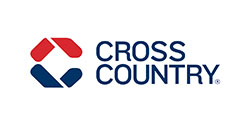(z) “Participant” means an Employee, Key Advisor or Non-Employee Director designated by the Committee to participate in the Plan.
(aa) “Performance Goals” means the performance goals described on Exhibit A.
(bb) “Person” means any natural person, corporation, limited liability company, partnership, trust, joint stock company, business trust, unincorporated association, joint venture, governmental authority or other legal entity of any nature whatsoever.
(cc) “Prior Plan” means the Cross Country Healthcare, Inc. 2020 Omnibus Incentive Plan, as amended through the Effective Date.
(dd) “Retirement” means a voluntary termination of employment or service at or after age 65 or such earlier date after age 50 as may be approved by the Committee, in its sole discretion, at the time of grant, or thereafter, except that Retirement shall not include any termination of employment or service by the Employer with or without Cause. With respect to a Participant’s termination of service as a Non-Employee Director, “Retirement” means the failure to stand for reelection or the failure to be reelected on or after a Participant has attained age 65 or, with the consent of the Board, before age 65 but after age 50.
(ee) “SAR” means a stock appreciation right, as described in Section 10.
(ff) “Stock Award” means an award of Common Stock, as described in Section 8.
(gg) “Stock Unit” means an award of a contractual right to receive one or more shares of Common Stock, cash or combination thereof, as described in Section 9, and denominated in a number of shares of Common Stock specified in an Award Agreement.
(hh) “Subsidiary” means any corporation (other than the Company) in an unbroken chain of corporations beginning with the Company, provided each corporation (other than the last corporation) in the unbroken chain owns, at the time of the determination, stock possessing 50% or more of the total combined voting power of all classes of stock in one of the other corporations in such chain
Section 3. Administration.
(a) Committee. The Plan shall be administered and interpreted by the Committee; provided, however, that any Awards to members of the Board must be authorized by a majority of the Board. The Committee may delegate authority to one or more subcommittees of the Committee or as set forth in Section 3(b), as it deems appropriate. Subject to compliance with applicable law and the applicable stock exchange rules, the Board, in its discretion, may perform any action of the Committee hereunder, and to the extent that no Committee exists that has the authority to administer the Plan, the functions of the Committee shall be exercised by the Board. To the extent that the Board, the Committee, a subcommittee or an officer of the Company or a committee of officers, as described below, administers the Plan, references in the Plan to the “Committee” shall be deemed to refer to the Board, the Committee, or such subcommittee or the officer or committee of officers.
(b) Delegation to Officers. Subject to compliance with applicable law and applicable stock exchange requirements, the Committee may delegate all or part of its authority and power to officers of the Company or a committee comprised of officers of the Company, as it deems appropriate, with respect to Awards to Employees or Key Advisors who are not executive officers or directors under Section 16 of the Exchange Act; provided that any such officer or officers may not grant Awards to themselves.































